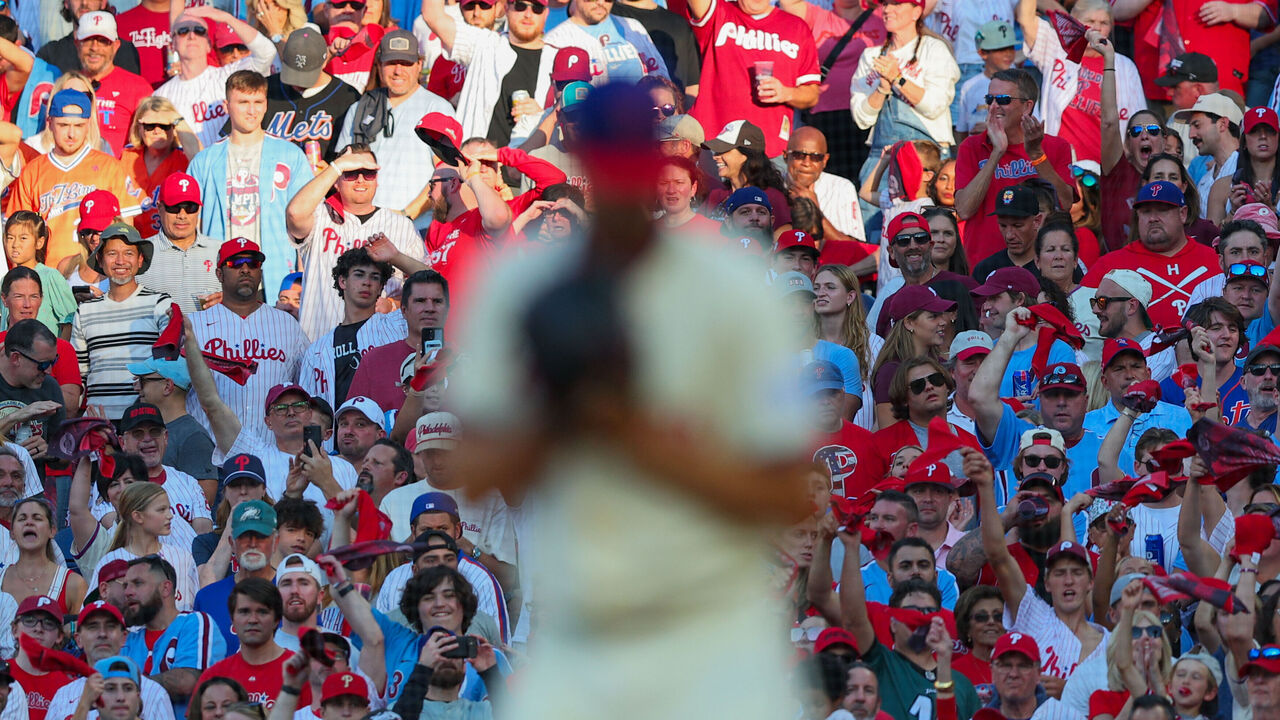Where did all the aces go?
Who's the best pitcher in baseball right now?
The pitcher you'd trust above all in a must-win game.
Zack Wheeler? He finished second in NL Cy Young voting for the second time in his career Wednesday, and leads the league in fWAR over the past four seasons. Chris Sale's an option after finally winning his first Cy Young, capping his incredible late-career resurgence. Tarik Skubal? He won pitching's Triple Crown and is now a Cy winner, too. Or maybe you're a Paul Skenes person.
What's not up for debate: none of today's active top hurlers are surefire Hall of Famers, which is both surprising and largely unprecedented in baseball history. Baseball's aces are going extinct.
So, what's happening?

In short: Teams are simultaneously asking less and more of starting pitchers than ever.
Less in terms of workload. Cleveland pulled Tanner Bibee from Game 2 of the ALCS after he recorded only four outs, and he was essentially the Guardians' only effective starting pitcher at the time. The move wasn't even that controversial when it was made.
But teams are asking more in terms of pitchers needing to optimize each offering every time they wind up, thinking of spin rate, vertical and horizontal break, tunnelling, and whatever other buzzwords are going around that we don't even know about yet. All while working against an actual pitch timer that wasn't part of any phase of their development. Oh, and if you can throw 100 mph while doing all of that, even better.
The average innings thrown by a starter in any given game has been trending down for years:
There's been some variance the last few seasons - perhaps related to pitchers still recovering from the shortened 2020 COVID campaign - but a starter's now recording two fewer outs on average every time he takes the mound compared to a decade ago.
This means two things for the future: The definition of true "ace" will have to change, and the bar for Hall of Fame acceptance for a starting pitcher will need to be lowered. (Sale's remarkable career maybe puts him into HOF contention; he'll be a fascinating test case for a contemporary starter when he becomes Cooperstown-eligible.)
Here's a list of baseball's top starters going back to 1990, in rolling four-year fWAR windows, featuring four HOFers and one who has the numbers but is being kept out (Roger Clemens):
We have to account for Johan Santana, who I'd argue should be in the Hall, and who I believe will eventually get there. That's not truly fair, though, as he's unequivocally an outlier in this group as one of five pitchers listed at least three times who either isn't enshrined or isn't currently considered a first-ballot guarantee once eligible. That's staggering and shows how far Santana fell after his world-beating crescendo.
The list could keep going, but you get the idea. Once you get past Greg Maddux's run in the 1990s, you get a few years of Clemens, whose steroid use is keeping him from enshrinement. There were a couple of interesting cases in the early 1980s in Dwight Gooden and Fernando Valenzuela, who had unbelievable early peaks but couldn't manage the longevity required of their era. Since them, though, it's been a consistent truth: if you were in the conversation for best pitcher in baseball at any point during the 30 years between 1990 and 2019, you were bound for Cooperstown.
That no longer appears to be the case, and it's one of the consequences of the post-ace era. While we enjoy whatever's left of the magical HOF careers of Clayton Kershaw, Max Scherzer, and Justin Verlander, we simultaneously acknowledge that bullpen games are the new normal. Even in the World Series, and even when baseball's two richest teams play in the Fall Classic.
Now, Cooperstown isn't going to stop admitting starting pitchers because of any of this. A HOF resume isn't a static idea; it evolves. Fans will have to adjust their sights, too. Gerrit Cole's likely heading to the Hall, for one. Beyond him, the squinting turns more into closing your eyes entirely in order to imagine what Aaron Nola, Corbin Burnes, Logan Webb, or Walker Buehler (to name a few) would have to accomplish in order for them to get there. And then there's Shane McClanahan and Spencer Strider, too, at the beginning of their promising careers and scheduled to return to the mound next season after Tommy John surgeries.
The goalposts will need to be adjusted moving forward. Once Wheeler's career ends and we wait the requisite five years for him to be on the ballot, the bar will be lower and his case will likely appear much more solid. We'll likely look back and laugh at the implication he wasn't headed to Cooperstown.
Baseball's changed monumentally from a generation ago. There was always a chance the golden era of starting pitching fans recently witnessed - prime Kershaw, Scherzer, and Verlander, all dominating at the same time - would be fleeting. But its actual end feels more dire than what could've been imagined.